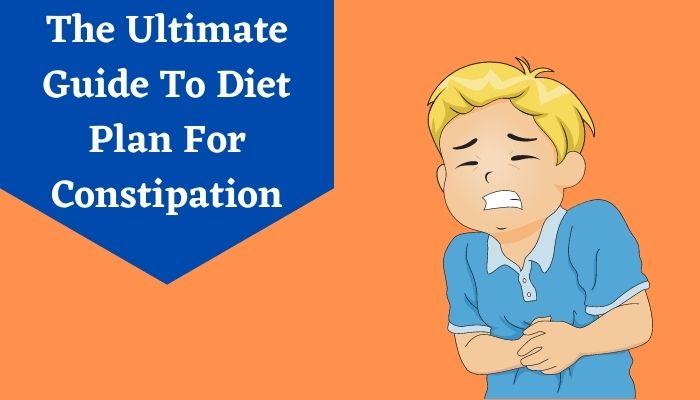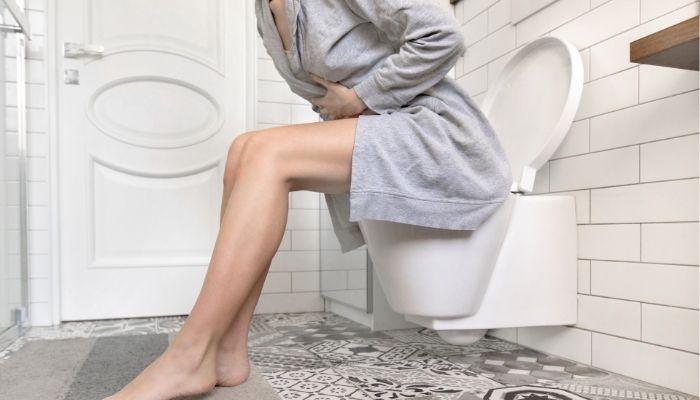Constipation is a digestive system healthcare condition where a person has hard feces and experiences difficulties in expelling it. Constipation happens when the fecal mass stays in the colon for more than 24-72 hours after digestion and there is a diminution in a person’s normal frequency of excretion. To treat constipation, a doctor often prescribes medications along with a proper diet plan for constipation.
Common Causes of Constipation
- The slow movement of stool within the colon as the colon absorbed the water from the stool
- Irritable Bowel Syndrome (IBS)
- Pelvic floor disorders
Treatment for Constipation
Your underlying diseases are responsible for constipation; hence you need to treat the underlying cause. Some measures that you may take to lessen your constipation could be drinking adequate fluids, eating more fiber, and exercising.If these are not effective, then your doctor will recommend some laxatives of the bulk-forming agent, osmotic agent, stool softener, or lubricant type. Wake up early and finish breakfast and then, finish your bowel movement. You may use public bathrooms when you feel the urge. If you delay your bowel movement, it will aggravate your constipation.
High Fiber Diet Plan For Constipation
Fiber gives relief from constipation. If your bowel habit is getting slower, you don’t need to purchase laxatives hurriedly. Most people used to suffer from mild constipation; hence they don’t need any medication. Instead, they should focus on their diet plan and must follow a meal plan for constipation. Are you eating adequate fibrous foods?Fiber is a type of plant food that the body can't break down easily. If your food contains a lot of fiber, then the extra bulk softens your stool and speeds up the digestion process.
All plant food items like fruits, vegetables, whole grains, and beans, come up with fiber. The Academy of Nutrition and Dietetics recommends 25 grams per day for women and 38 grams for men. After age 50, people need less fiber. Thus their diet should be about 21 grams of fiber for women and 30 grams for men. But most people usually consume only 15 grams per day and that’s why in India so many people get constipated.
Examples of high-fiber foods are:
- 1/2 Cup Navy Beans: 9.5 grams
- 1 Small Pear: 4.4 grams
- 1/4 cup Dates: 3.6 grams
- 1 Medium Apple: 3.3 grams
- 1 Medium Sweet Potato: 4.8 grams
Constipation Diet Chart to Improve Your Digestive Health
If you alter some changes in your diet, it will improve your constipation. Here are some suggestions to include in your diet plan for constipation:1. Add Vegetables
Always incorporate 2 cups of fruit and 2 1/2 cups of vegetables into your diet every day. You can prepare delicious sandwiches with roasted veggies or make a salad instead of taking fries for your meal.
Purchase some pre-cut vegetables and eat them as a snack with a low-fat dip. Keep your fruit bowl handy and healthy. Always add chopped and dried fruits to oatmeal and cereal to make them more fibrous and nutritious.
2. Go for Grains
Discard white bread, white rice, and regular pasta completely. You can consume whole-grain bread, whole-wheat pasta, and brown rice. Prefer whole oats, multigrain cereals, and whole wheat crackers over white food items.
But only choose low-fat and low-sugar options. Instead of eating chips, prepare your snack in air fryers. While purchasing cereals, select brands that offer at least 5 grams of fiber per serving.
3. Bulk Up On Beans
Try to replace meat with a bean or legume dish.
Add cooked beans to salads, and you can make bean soups and stews as main courses.
4. Add Fiber Gradually
Don’t start consuming too much fiber instantly rather, change your meal plan gradually over a week. If you eat excessive fibrous foods, you may end up feeling bloated and gassy.
Keep your patience and give some time to your body to adjust.
5. Take a Fiber Supplement
If you can’t get sufficient fiber from your diet, you can consider a supplement. These supplements are known as bulk-forming laxatives and they are mild and safe.
But before taking them, talk to your doctor once as all medications may not work for everyone.
6. Stay Hydrated
Though you can add more fiber to your diet either with food or supplements, always drink more fluids to stay hydrated.
Consider low or no-calorie beverages. Sugary soda and other roadside fruit drinks may add unwanted calories to your diet.
Get Relief From Constipation With Exercise
Perform exercises regularly as they will help food to move more quickly through your colon. You can follow the below-mentioned tips to ease your constipation.Start exercising about 20 minutes for 3 days every week. But consult your doctor first, before incorporating any fitness plan into your daily regime.
Certain Things You Should Never Do if You Have Constipation
- Discard refined foods and their products like white rice, flour, white bread, white pasta
- Avoid caffeine and alcohol
- Don’t consume frozen and processed foods
- Avoid red meat, oily and fast foods
- Don’t overuse milk
- Never overuse laxatives




